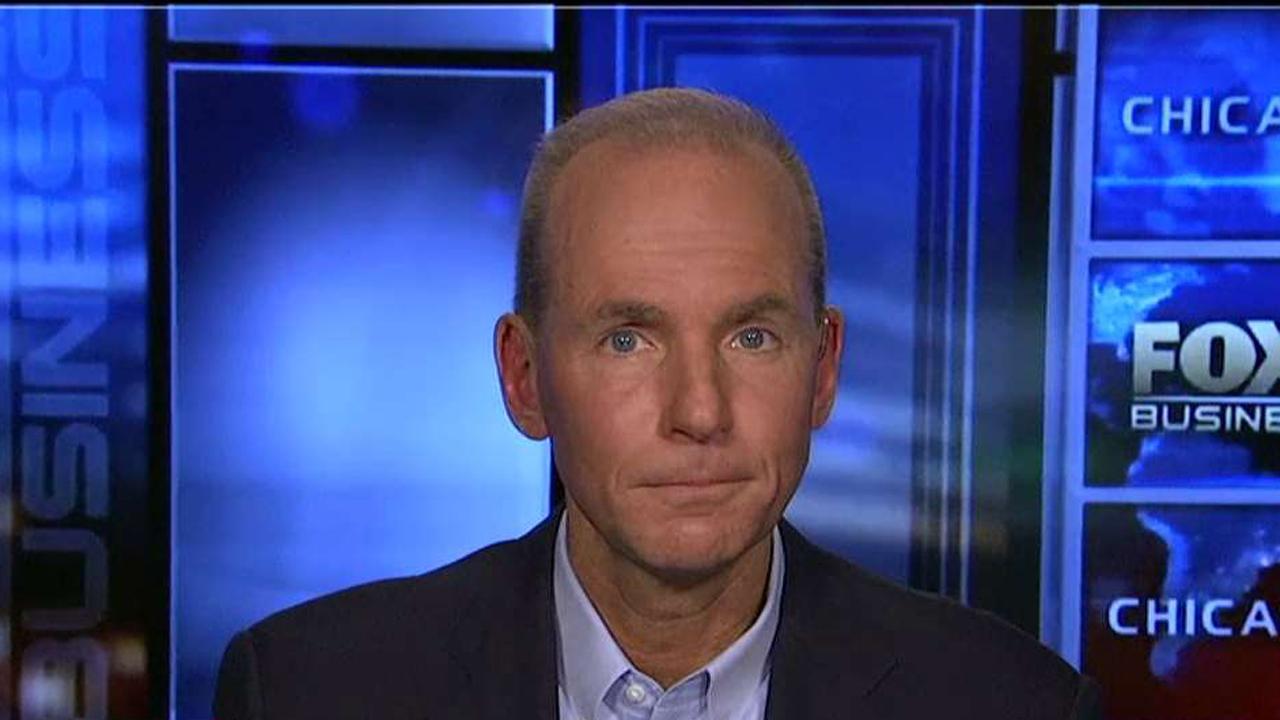Boeing to further AI, tech investments using tax cut savings
U.S. aerospace giant Boeing continues to reap the benefits of a lower corporate tax rate, and is planning to invest the money it’s saved in researching different forms of technology in addition to its own workforce.
“We're going to continue to invest in technology and research and development and cap ex,” Boeing Chief Financial Officer Greg Smith told FOX Business. “This certainly fits right into that capital allocation and continuing to invest in things even broader than our four programs like autonomy and like artificial intelligence and other forms of technology that the tax reform is really helping us fund.”
The tax reform package – called the Tax Cuts and Jobs Act of 2017 – was signed into law in late 2017 and slashed the corporate rate to 21 percent from 35 percent. Boeing said the lower tax rate would directly benefit the company’s employees and shareholders.
HorizonX, Boeing’s venture arm, invests money in global startups with minimally viable products that have the potential to scale. Areas of interest to the company include space and advanced manufacturing and materials, in addition to the autonomous systems and AI. It recently invested in Isotropic Systems, a London-based company creating satellite user terminals to help enable low-cost, mass-market broadband connectivity.
"Boeing HorizonX Ventures is one of the premier industrial VCs investing in all sorts of – I would call it leading edge technologies – so they've got capital going to the right places,” Carter Copeland of Melius Research told FOX Business.
| Ticker | Security | Last | Change | Change % |
|---|---|---|---|---|
| BA | THE BOEING CO. | 243.03 | +6.08 | +2.57% |
Previously, Boeing partnered with JetBlue Technology Ventures (the VC subsidiary of JetBlue Airways) and invested in Zunum Aero, which is developing hybrid-electric jet aircraft in an effort to address the gap in regional transport infrastructure. Currently, regional jet aircraft made by companies like Canada’s Bombardier and Brazil’s Embraer dominate the shorter-range market.
“They're positioning themselves where they can take advantage of different technology changes but not overstretching their balance,” Josh Sullivan of Seaport Securities told FOX Business. “They're making appropriate technology investments for the risk profiles that they exhibit.”
Meanwhile, Boeing put its investment in autonomy to the test last month when it completed the first flight of its self-flying air taxi. The vehicle, an electric vertical takeoff and landing aircraft (eVTOL) developed by Boeing’s NeXt division, made a controlled takeoff, hovered above the ground and landed, according to the company.
The aerospace giant is also putting money toward its employees and for education programs.
CLICK HERE TO GET THE FOX BUSINESS APP
After the tax reform package was passed by Congress, Boeing announced employee-related and charitable investments of $300 million, saying the new law boosted the company’s competitiveness and “supports long-term growth.” Last June, the company put $100 million toward new workforce development programs, part of its pledge to invest the $300 million in employees.
“This was a great allocation of capital to really again enable that and accelerate the education and training and development for future aerospace workers,” Smith said. “So I think we're pretty proud about how we've been utilizing those funds to date. And you should expect, I'll say kind of a similar profile of that use of capital for us going forward.”




















